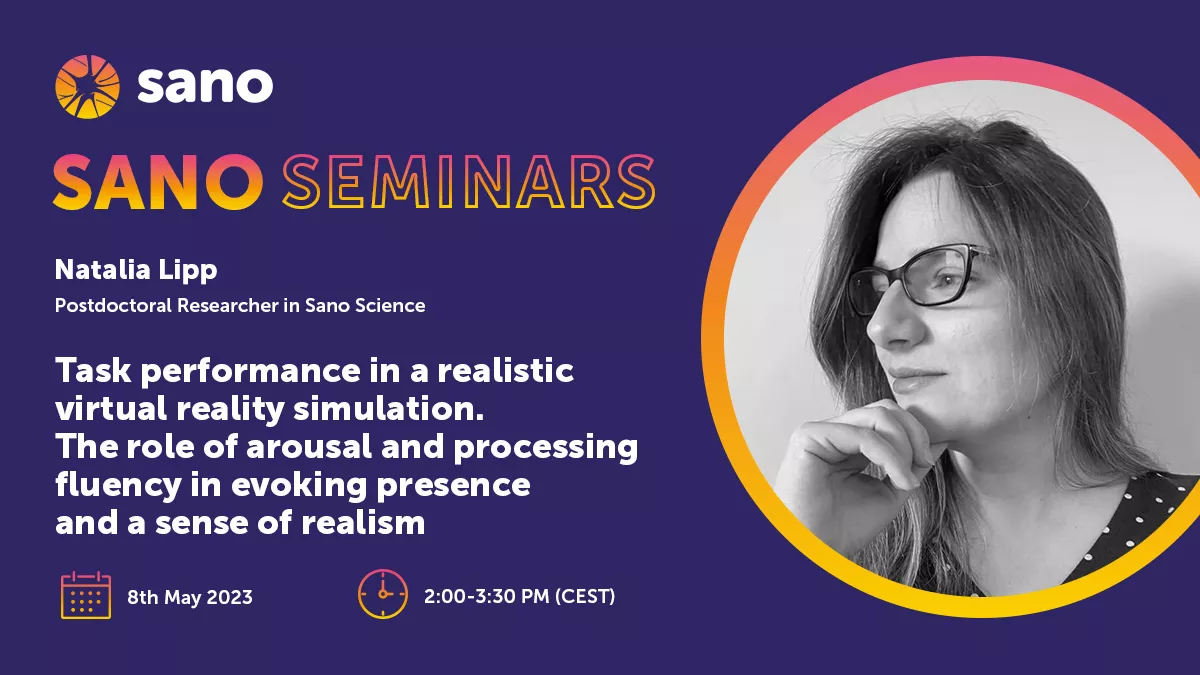
98. Task performance in a realistic virtual reality simulation. The role of arousal and processing fluency in evoking presence and a sense of realism
Natalia Lipp – Health Informatics Team, Sano Centre for Computational Medicine, Krakow, PL
About
Simulation realism defined as the extent to which virtual objects are perceived as real is a crucial factor for task performance in virtual reality (VR). As technological capabilities continue to increase, modern VRs are becoming more similar to the physical world. The pursuit of extreme realism may not be justified as it seems that objective realism and its subjective perception do not always overlap. The issue is that a sense of realism does not simply result from the graphical quality of a simulation as it is often connected to users’ expectations and the capacity of the user’s cognitive system.
During this seminar, I will introduce perceptual and cognitive processes that are engaged during interaction with VR. I will present the results of three experimental studies conducted in VR in which I tested the influence of perceptual characteristics on task performance. In addition, I will discuss the role of physiological arousal in perceiving virtual objects.
About the author
Natalia Lipp graduated from the Jagiellonian University in Kraków, Poland with a master’s degree in Psychology. Natalia completed her Ph.D. studies at the Faculty of Management and Social Communication of Jagiellonian University. Her doctoral research concerns the psychological factors of human-computer interaction, particularly the role of immersion and imagination in task performance in virtual reality. In 2022, she defended her thesis titled: ‘The Cognitive and Social Determinants of the Sense of Realism in Virtual Reality’.
Currently, Natalia is a postdoctoral researcher at Sano – Centre for Computational Personalised Medicine – International Research Foundation in Kraków in the Health Informatics Group. She is devoted to studying trust in Artificial Intelligence in clinical settings. Her scientific interests include but are not limited to the perception of virtual environments, in particular: the uncanny valley effect, mimicry of virtual avatars, and virtual embodiment.

